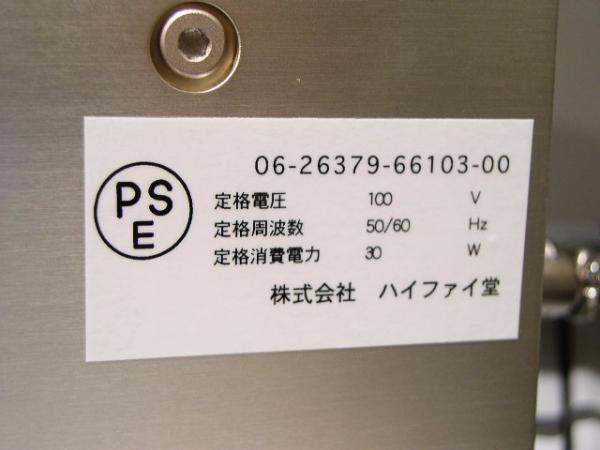I had actually heard about this a few months ago, I think on some Japanese news site. But yesterday I was surprised to see that The Motley Fool had reported on it.
You’ll have to forgive me for not catching this one sooner. A year ago, I wrote about the possibility of Japanese retailer Fast Retailing’s Uniqlo business setting up shop in the U.S. and the potential competitive problems that could cause for Gap (NYSE: GPS). However, it looks like I wasn’t paying close enough attention, because in the last six months, Uniqlo has opened three stores in New Jersey and now has one store open temporarily in the SoHo neighborhood of Manhattan.
 I must admit, I was a little puzzled to see that their first three stores were in New Jersey malls, at least there is some kind of sense to it. After all, while we may not have the largest mall in the country, we are the undisputed center of the shopping mall lifestyle – as much as that association pains my holier than though New York oriented Montclair ass. Now, the fact that their next store was in Soho really shocked me. At least, shocked insofar as I can have any kind of emotional reaction to retail clothing. Which, I should not have to inform you, is rather minimal.
I must admit, I was a little puzzled to see that their first three stores were in New Jersey malls, at least there is some kind of sense to it. After all, while we may not have the largest mall in the country, we are the undisputed center of the shopping mall lifestyle – as much as that association pains my holier than though New York oriented Montclair ass. Now, the fact that their next store was in Soho really shocked me. At least, shocked insofar as I can have any kind of emotional reaction to retail clothing. Which, I should not have to inform you, is rather minimal.
Now, will Uniqlo have any impact? Well, they’ve already managed to expand profitably into China, Korea, Hong Kong and apparently, England. I assume that if England had been a flop they would never have bothered with the US. But what does the Fool think?
Overall, I still believe Uniqlo poses the biggest threat to Gap’s namesake stores and its Old Navy shops, because the price point, style, and level of quality are similar. Whether or not Uniqlo ends up being a true threat will take years to play out, and Uniqlo will also need to prove that it will endure in the U.S. and is not just a passing fad. As a customer of Uniqlo for a number of years, I believe the company can compete successfully, largely because the company has had some success in the U.K., Hong Kong, and Korea.
 I must say, I always liked Uniqlo well enough when I was in Japan. I have a jacket from there that I’m rather fond of, and the zip-up black hooded sweatshirt I got almost 4 years ago for something like 2500 or 3000 has very possibly been worn more days in total than any other single piece of clothing that I own, but in all honesty the main attraction of Uniqlo was that it was the only decent store in Japan where I could find clothes that I was comfortable with at a decent price. While the Gap and Levis stores in Kyoto might offer clothing that I would be willing to wear, they did it at prices dramatically higher than I would pay for identical items in the US, while Uniqlo, despite being in Japan, cost no more than the Old Navy at the Willowbrook Mall a short drive from my house in Jersey. Uniqlo may be a pretty good store in Japan, but is there any particular need in this country for a Japanese clothing brand whose style is, in my eyes, virtually indistinguishable from the preexisting mainstream American brands?
I must say, I always liked Uniqlo well enough when I was in Japan. I have a jacket from there that I’m rather fond of, and the zip-up black hooded sweatshirt I got almost 4 years ago for something like 2500 or 3000 has very possibly been worn more days in total than any other single piece of clothing that I own, but in all honesty the main attraction of Uniqlo was that it was the only decent store in Japan where I could find clothes that I was comfortable with at a decent price. While the Gap and Levis stores in Kyoto might offer clothing that I would be willing to wear, they did it at prices dramatically higher than I would pay for identical items in the US, while Uniqlo, despite being in Japan, cost no more than the Old Navy at the Willowbrook Mall a short drive from my house in Jersey. Uniqlo may be a pretty good store in Japan, but is there any particular need in this country for a Japanese clothing brand whose style is, in my eyes, virtually indistinguishable from the preexisting mainstream American brands?


